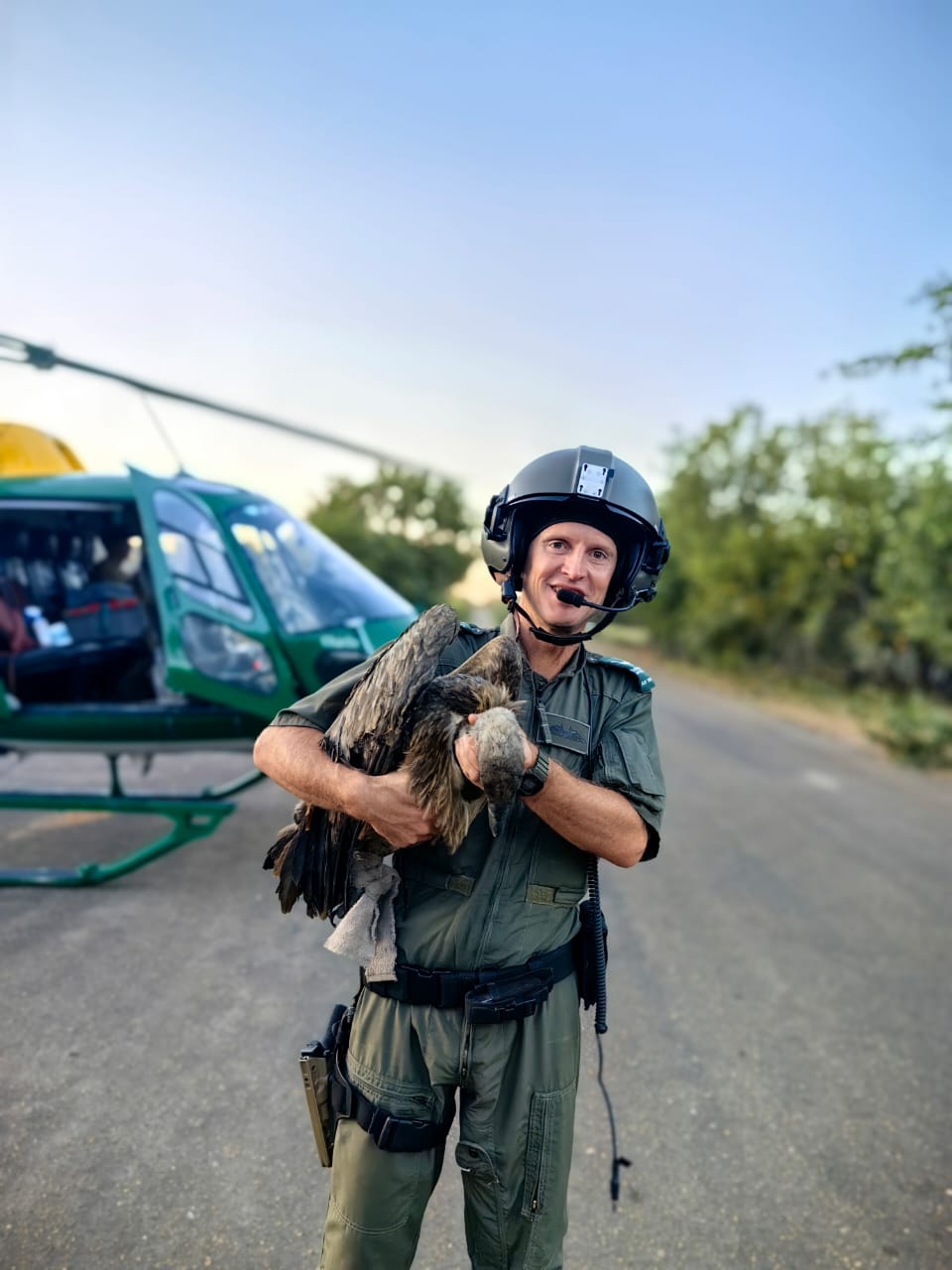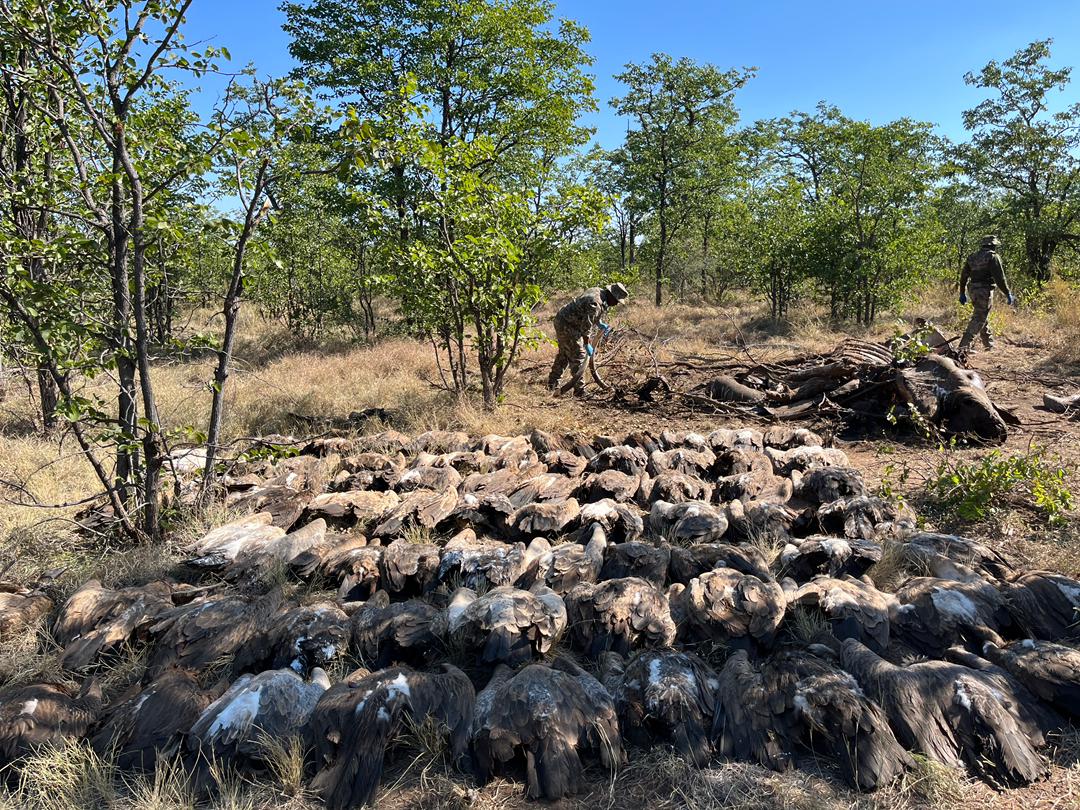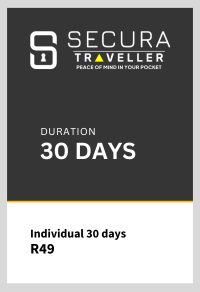84 Cape Vultures Rescued from Poisoning in the Kruger National Park
MEDIA RELEASE
84 CAPE VULTURES RESCUED FROM POISONING IN THE KRUGER NATIONAL PARK
Issued jointly by:
South African National Parks (SANParks) & the Endangered Wildlife Trust (EWT)
Eighty-four vultures have been rescued by a joint team of SANParks rangers and Endangered Wildlife Trust (EWT) officials from a devastating poisoning in the Kruger National Park. The incident in the Mahlangeni Section of the Park was detected by the EWT’s pioneering wildlife poisoning surveillance and detection system, which triggered an alert at 06:05 on 6 May 2025, flagging suspicious activity in a remote section of the park.
Within hours, a joint SANParks and EWT team mobilised, arriving on site by 08:20. There, they discovered the grim reality: a mass poisoning event involving hundreds of vultures, the result of an elephant carcass laced with highly toxic agrochemical pesticides - poison laid by poachers to harvest body parts for the illegal wildlife trade.
The incident is one of the largest seen in the park. A total of 116 vultures were found dead at the scene.
A World-Class Wildlife Rescue Operation
The initial responders - six SANParks rangers and two EWT officials - found two vultures alive, but severely affected, roughly 500 metres from the poisoned elephant carcass. These were immediately treated using emergency vulture first aid: atropine, activated charcoal, and fluid therapy.
Reinforcements were swiftly deployed. Support teams from the Moholoholo Wildlife Rehabilitation Centre, Briner Veterinary Services and Wildscapes Veterinary Services mobilised within hours, while SANParks activated ranger and aerial support - including the Hope for Wildlife helicopter and additional logistics support - making this the first time SANParks helicopters were formally used in a wildlife poisoning rescue of this scale.

What followed was a coordinated, high-intensity rescue effort:
- 84 vultures—including White-backed, Cape, and Hooded Vultures—were rescued alive.
- 45 were transported by the EWT’s vulture ambulance, a specialised mobile unit designed to stabilise poisoned birds en route to treatment facilities.
- 39 more were airlifted by helicopter to the SANParks K9 facility in Phalaborwa for immediate monitoring.
- A final group was transported later that night to Moholoholo for continued intensive care.
- Teams include vets from WildScapes and Briner Veterinary Services, as well as the Moholoholo team, worked through the night to stabilize each bird and keep them alive.
Despite the best efforts, five vultures succumbed to poisoning. However, a remarkable 96% survival rate was achieved among those found alive. As of this morning (8 May 2025), 83 vultures are still alive and recovering.
A National Wildlife Tragedy
The scale of the tragedy is staggering: 123 vultures were found dead at the scene - 102 White-backed Vultures, 20 Cape Vultures, and one Lappet-faced Vulture, all listed as endangered or critically endangered species. Of these, 116 were already deceased when the team arrived.
This marks one of the largest vulture poisoning events in Southern Africa - and the most extensive coordinated response effort and rescues to date. Over 20 individuals across conservation, veterinary, and enforcement sectors played a role in the rescue and response. Without rapid detection by the EWT’s wildlife poisoning detection and surveillance system and the unprecedented cooperation between NGOs, rangers, vets, and SANParks aerial and ranger units, many more birds would have been lost.

The Growing Threat of Poison Poaching
This horrific incident is part of a broader crisis unfolding across southern Africa: the escalating use of poisons in wildlife poaching. Poachers increasingly use agricultural toxins to target high-value species - not just vultures, but also lions, whose body parts are in growing demand for traditional medicine or muthi.
This incident is a setback to the vulture population in the Greater Kruger Landscape which is trying to recover from similar incidents in the past. SANParks is collaborating with various agencies and institutions to address the current increase in particularly poisoning incidents. The latest operation highlights the importance of partnerships in addressing this problem. The recovery and treatment of the live vultures would not have been possible if such partnerships were not in place.
We commend every individual who responded to this tragedy. Their courage, skill, and relentless commitment transformed a potential extinction-level event into one of the most successful vulture rescues ever recorded.
The operation saw helicopters making multiple trips between the incident site and Phalaborwa throughout the day to assist with the movement of the vultures.
Ends
For previous media statements please go to www.sanparks.org
Issued jointly by:
South African National Parks (SANParks) & the Endangered Wildlife Trust (EWT)
JP Louw: SANParks Head of Communications and Spokesperson
Media enquiries either:
Ike Phaahla: Manager: Communications and Marketing – KNP, Tel: 013 735 4363; Cell: 083 673 6974; or Email: Isaac.phaahla@sanparks.org or
Eleanor Momberg: Communications Manager – EWT, Tel: 011 372 1052, Cell: 083 400 5741; or Email: eleanorm@ewt.org























